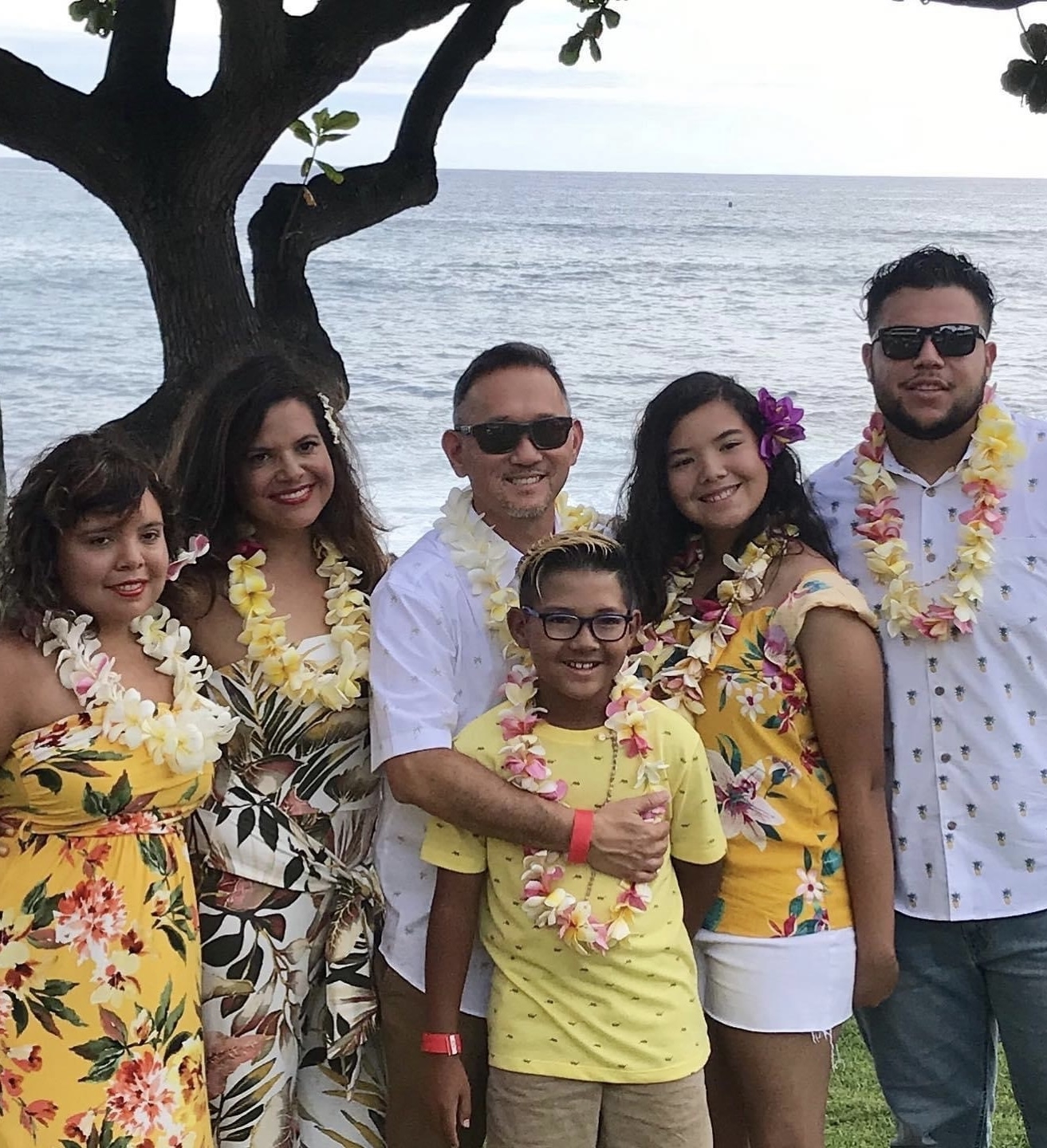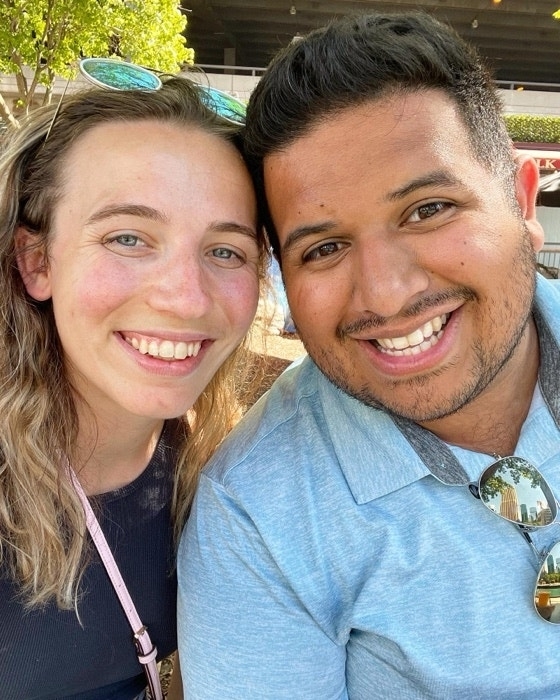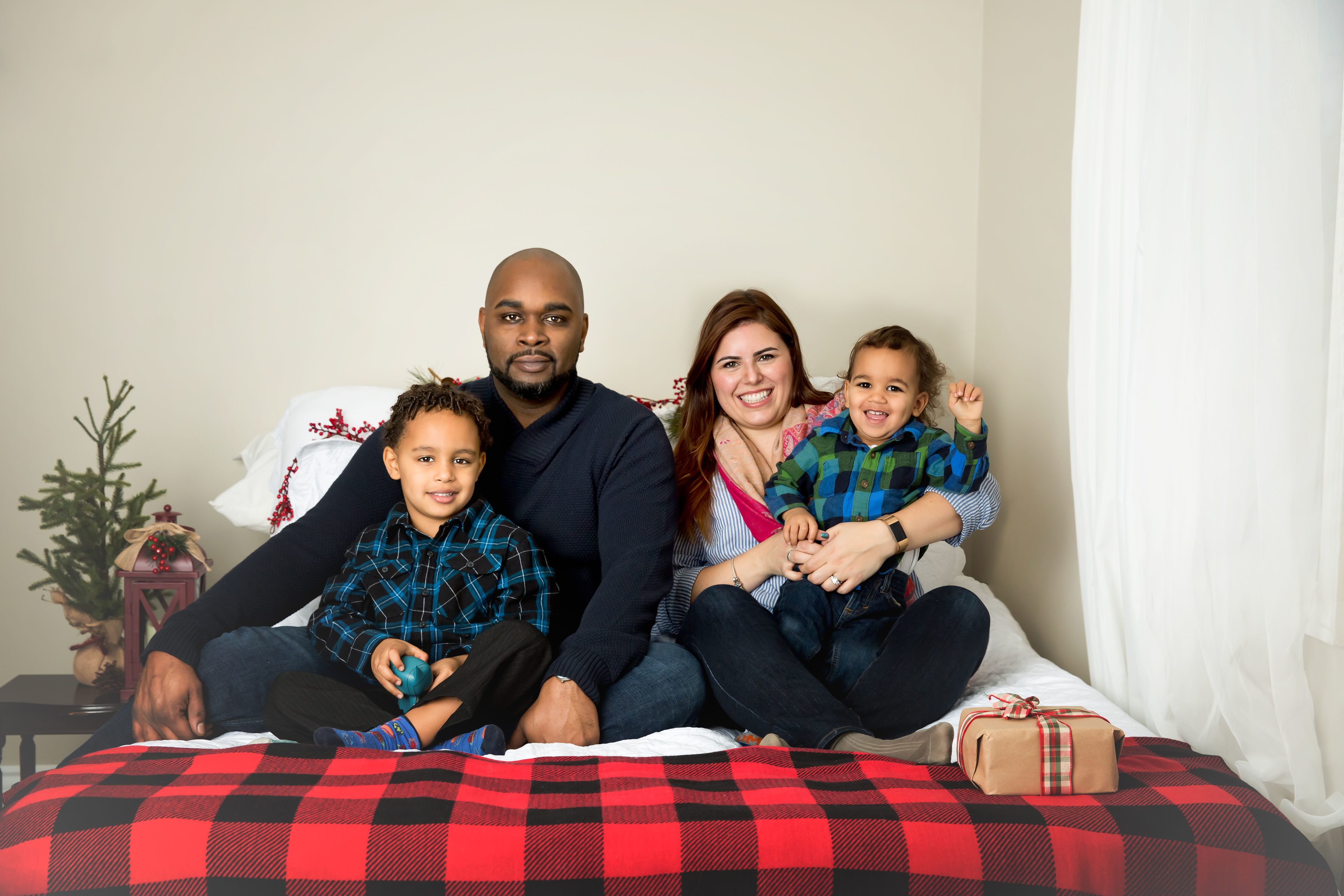" I ’m half Korean and half blank ; my married man is fourth - generation Mexican American . We do our good to immix our refinement . "
Hi, I’m Victoria, and I’mGreekand Korean. Between my parents' relationship and my childhood, I have countless stories about how my family has blended cultures and traditions over the years — not to mention my extended family is pretty mixed, too. Sure, there were a few bumps in the road, but celebrating different cultures seemed natural and seamless as a kid. Now that I’m older, I can appreciate how everyone made an active effort to integrate traditions and embrace each other’s cultures.
So, curious to know about the experiences of more folks in mixed families and interracial relationships, Iaskedpeople in theBuzzFeed Communityto share how they’ve blended their cultures and traditions. In response, they shared their experiences and opened up about their families — from how different sides get along to how they raise their kids with multiple cultures. Here are 16 of their thoughtful, honest, and insightful stories (that I thoroughly appreciated reading) below:
1.“My parents are from the Philippines, and my husband’s parents are Nigerian. (As an added twist, he was born and lived in Italy for his first few years.) I think the blending of our cultures was pretty smooth — mostly because both of our families are Christian and have similar values. It’s been fun to explore each other’s languages, foods, and cultural events. He was my escort at my debut (18th birthday), and our wedding festivities included a Nigerian prayer and engagement party. Overall, our families get along great and are open to the differences that come with our cultural backgrounds.”
2.“I’m white and Jewish; my wife is Bolivian and Christian. During our wedding, we included a lot of Spanish — most of her family friends only speak Spanish — and incorporated Jewish traditions. (I’ve since picked up quite a bit of Spanish and taught her the few Yiddish words my mom taught me.) However, we’ve mostly blended cultures through food. We live 30 minutes from her mom and sister, so we’re often over there for dinner. Her mom makes mostly Bolivian food, though I’ll make them Jewish dishes on Jewish holidays (her mom really likes matzah ball soup). I even bought some Haggadot for the Passover Seder and plan to do one with them next year. Because our cultures also seep into how we think and act, we tell each other about our traditions and why we celebrate certain holidays.”
" My wife ’s mom and sis do traditional Bolivian dances , so we watch them when they do . Otherwise , I ’m mostly the one explaining Judaic holidays to my wife since she ’s Christian , and there are n’t too many Bolivian holidays .
That being said , I ’m not that religious , and my married woman come to the US as a babe , so we ’re both pretty Americanized and ensnarl well together . Still , there is definitely a blend of culture . "
— flyerboy6

“I’m half Korean and half white; my husband is fourth-generation Mexican American. We do our best to blend our cultures."
3.“My parents are from Bangladesh, though I was born in the US. My husband was born in El Salvador and came to the US when he was 6. We’ve been married for over 10 years and have three kids. He converted to Islam because he wanted to, but we celebrate a big Christmas with his extended family every year. I go all out — getting two Christmas trees and baking a bunch of cookies — and he makes Salvadoran tamales wrapped in banana leaves as a traditional Christmas dish. Growing up, I never celebrated Christmas, so this is my chance to go holiday-wild as an adult. We also celebrate Ramadan with iftar dinners and Eid celebrations with the local Muslim community at our local mosque. My eldest is 8, and he loves embracing both cultures. It seems so natural to him now, and I hope he appreciates it as he grows!”
" I also get up residential area iftars for my small town so the great unwashed from all backgrounds can fall in . "
— snadiah
4.“I’m half Korean and white; my husband is fourth-generation Mexican American. We do our best to blend our cultures. When we celebrate Día de los Muertos, we have an ofrenda with photos of relatives from both sides. When we celebrate Christmas, we open presents at midnight on Christmas Eve. At family gatherings, we always have both Mexican and Korean food. His family has been especially welcoming of my Korean cooking. We even mix dishes — eating tortillas with KBBQ, putting kimchi on tacos, etc. Growing up with my Korean mom, I never wore shoes in the house. As an adult, I still don’t, and I’ve noticed that’s been one of the biggest adjustments for my husband and his family.”
" When they come over , there ’s often a cultivated reminder to please take their brake shoe off . But all in all , it ’s been pretty smooth , to be honest . We learn from each other ’s cultures , and we adjust . Patience is a bighearted thing when conflate multiple polish . "
— Jae , Colorado
5.“I am mixed race, Black and Latina, and identify as AfroLatina. I am married to a Korean American, and we have four multiracial, multicultural, and multilingual children. We live a very intentional life by learning what we can about all the cultures in our home. We have books and dolls that reflect our multi-reality, and we celebrate each other’s cultures and holidays, like Chuseok and Día de los Muertos. It’s very easy to blend cultures; it just takes being intentional with your goals — no sacrifice necessary, just patience and grace. My youngest children even went to a dual-language (Korean/English) public school.”
6.“I’m Samoan, white, and Chinese. My father tried to teach me and my siblings about Samoan culture, but that went out the window after my parents divorced. Now, I’m learning about and sharing my culture with my kids. Similarly, my mixed European husband teaches them about his Black Welsh culture. In our experience, blending the family has been very easy. We aren’t religious, so we can support whatever faith our kids choose when they’re older. That’s really where we decided to take things; if we don’t have an answer about our ethnicity, we all learn together. The kids are little, so we haven’t had to sacrifice much, but it has taken patience to introduce them to Samoan food. If I weren’t no contact with my father’s side, I’d introduce them to my kids. They’d have an idea of what it’s like to be Samoan, attend Polynesian events, and visit Chinatown. My husband also has no contact with his family, so that leaves our white sides.”
" Before my parents divorce , it was awesome . Though my female parent never knew her ethnicity , my male parent would take us to Polynesian festivals and family get - togethers and make traditional intellectual nourishment at habitation . After they dissociate , I started saying I was a whitewash Samoan when other kids asked , ' Well , what are you ? '
It ’s very dishearten to cogitate back on those moments as an adult . I had no idea what being Samoan meant or what my polish was . Inferno , even my name infuriated me as a child . ( think those tests in high schooltime that made you fill out yourentirelegal name ? My name took up all but three space . )
My husband and I now regale learning about our cultures like a treasure Holman Hunt with our kids . For instance , whenever we come across something about my husband ’s Black Welsh side , he ’s excited to learn more and teach the tike about it . possibly we could do a Black - Cymry - themed day at home with nutrient and games . We have n’t tried to inaugurate his food to them yet . Just introducing them to the strong , piquant , and sweet premix of Samoan food has been a dull journey , but it is working . "
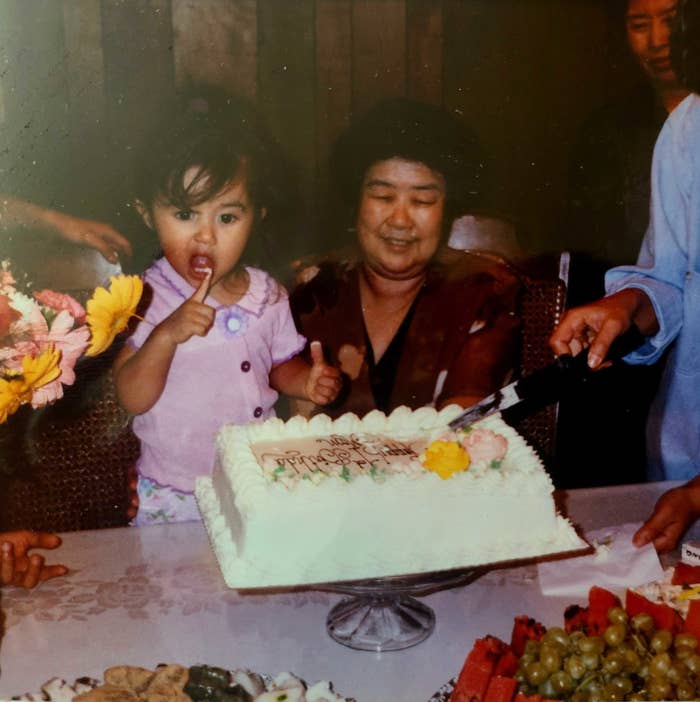
— Ane D. , Texas
7.“He’s Italian American, and I’m Russian and Japanese. We love to make fusion foods together and learn each other’s languages. We also celebrate Italian Christmas, Russian Christmas, and Russian New Year (using the Julian calendar) every year. We’re now planning a beautiful, traditional Russian wedding with Italian traditions.”
— zombiedolllizkah
8.“My husband is Mexican, and I am Vietnamese. We’ve pleasantly discovered our cuisines can be very similar in how they’re prepared and served, so our families have enjoyed trying each other’s favorite meals. We’re also both Catholic, which has been an important bridging factor between us and our families. Still, it’s been hard for my husband to communicate with my parents because their English isn’t great. Besides that, things have been pretty easy.”
" My parents immigrated to the US afterwards in life and mainly speak Vietnamese . On the other hand , my in - laws come to the US at a untested geezerhood , so they ’ve assimilated more .
Honestly , the hard part is splitting holidays . Our parent live in unlike cities , so one of us misses out on family sentence . "
— Kim , California
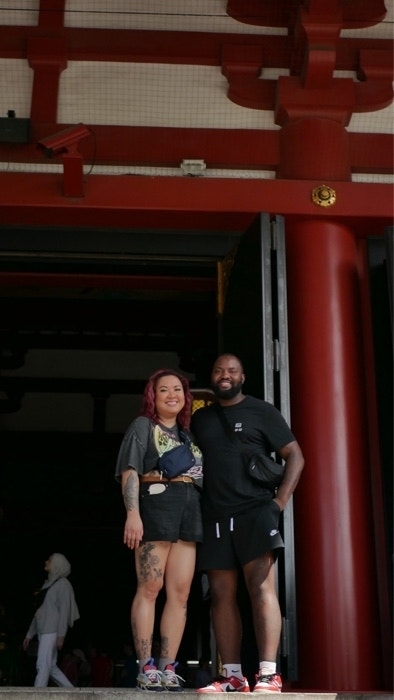
9.“My husband and his family are from Venezuela. They immigrated to the US when he was 9 years old. My family and I are from Georgia. When things got serious between us, I was a little timid about telling my parents due to their political beliefs and the statements they’d make when I was younger. However, they were the most supportive they’ve ever been! Since immigrating, my husband’s family traditions have slowly evolved and become somewhat Americanized. Still, we very much have blended two cultures in our household. Whenever we run into differences, we discuss the pros and cons and then figure out how we would like to handle things together. For example, my husband doesn’t believe in celebrating Christmas. After talking about what we have against it and what we could change to make it our own without causing our kids to feel left out, we decided to celebrate Christmas without the concept of Santa.”
10.“My mom is Caribbean and of Indian descent; my dad is American and of European descent. I think the most significant ways cultures were mixed in my household were through food and slang.”
— legoforest
11.“I’m white American, and my husband is Indian. His family is from Africa, so he already grew up with mixed cultures. Since we live in Quebec, our family blends at least three cultures: mine, his, and Quebecois. We baptized our daughters in his religion (though we don’t practice) and gave them first names from his culture. We also teach them about his culture, observe his holidays, and preserve his traditions. It’s a bit trickier since his parents have passed, but we try to meet with his (large) extended family as often as possible. We also cook and eat Indian food weekly. We hold on to my culture, too, simply because we live so close to the US. My entire family is there, so my kids and husband are routinely exposed.”
" Living in Quebec — which has its unequaled history and customs — adds another layer . Though it ’s North American and Canadian , Quebecois culture is very much its own thing . Our girl attend a French schoolhouse where they speak French all Clarence Shepard Day Jr. and see about Quebec . Growing up with the added Quebecois civilization is fun ! "
— venny
12.“I am white American, and my husband is Korean American. We both came into our marriage with kids. We tend to celebrate all major secular American holidays and traditional Korean holidays that my in-laws celebrate (like Chuseok). Our home is a mix of American and Korean; we have a kitchen table but usually sit on the ground to eat at a low table. We also have Korean decor around the house (my favorite is our Korean wedding ducks). We also don’t wear shoes in the house (and I keep slippers around for anyone who wants them). We cook about a 50/50 mix of Korean and American food, but rice is always available. Most of the time, it’s easy to integrate traditions. I don’t feel like I have a specific culture of my own, and I really love many aspects of Korean culture. The only difficult part is how close his family is.”
" I did n’t develop up with a family that was very close , but my married man ’s family is always getting together . Because my mother - in - law and I are very standardized in personality , our obstinacy can create friction , but we get along 90 % of the time . "
— R , Georgia
13.“My parents are Greek and Scottish; my husband’s parents are Jamaican. We were born three days apart in the same hospital in Canada. We got married in Jamaica and baptized our kids in the Greek church. Blending cultures has allowed us to bring different traditions to our family. For example, his family struggled to celebrate Christmas; mine was super into it, so I brought the ‘Christmas magic.’ (He initially didn’t agree with Santa, but once he saw the magic, he didn’t want to burst the kids' bubble.) He’s a chef, so there’s always more Jamaican food in the house. Food diversity is also one of our biggest common loves. I introduced my husband to lots of new foods — I think that’s why he fell in love with me! — so it’s great to do that with the kids, too. They’re little foodies. Regardless of culture, we both grew up with divorced parents, so we’re committed to keeping our family together and happy.”
14.“My husband is a full-blood Native American mutt, and I am a white mutt. (That’s a joke between us because he’s a mix of four tribes, and it’s easier to name what ethnicities I’m not.) We’ve been married for four years. Since we’ve been together, I’ve started talking more like his family (with their slang), and he’s taken to more things like Scotsfest and Jewish museums. Blending our cultures has been easy. His family even brought me into the family trade of beadwork after I learned how to do it.”
" woefully , I get called racist a good deal when they listen us all together , and I ( the ashen one ) am using their jargon and terms . But it ’s nothing I ’d change . "
— Sam , Oklahoma
15.“My husband and I are both products of mixed-race families that were trying to be more American, so we don’t have a lot of cultural traditions from our childhood to carry on. Still, we try to find things we can incorporate with what little knowledge we have. We try to celebrate the big holidays from our cultures, learn songs or phrases in other languages, and introduce our kids to diverse foods. We also use maps to show them where different generations of our family came from. I am a bit conflicted about how/if I should bring these traditions into our lives.”
" Between my husband and me , our nestling are German , Nipponese , Indian , Welsh , English , and other multifarious ashen . I already have imposter syndrome related to my race , and now I ’m sample to teach my white - presenting ' all - American ' kids about Hindu holidays and Nipponese customs . I ca n’t get over the notion that I am appropriate something that does n’t belong to me even though my husband and I have every right hand to celebrate the culture that made us . "
— Anonymous , Georgia
16.“I’m a Korean adoptee raised in the US. My husband is of Scottish, Irish, and Finnish descent. Over the years, I’ve been reconnecting with my lost Korean identity, culture, traditions, language, and foods. I’m learning Korean and teaching it to my husband and our daughter. I’m also learning to cook Korean dishes and celebrate Korean holidays — like Chuseok (Thanksgiving), Seollal (Lunar New Year), and Children’s Day (our daughter loves this one). Though I already own a modern hanbok, I’m searching for traditional hanboks for myself, my husband, and our daughter. Similarly, my husband is proud of his clan and tartan, so he wears his kilt whenever he can. We also eat his food and celebrate some of his holidays. I am encouraging him to be more active all around!”
— kkad
